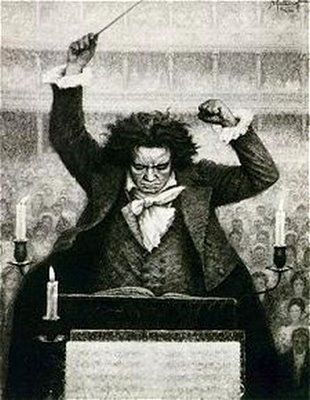Without pedals, apparently.
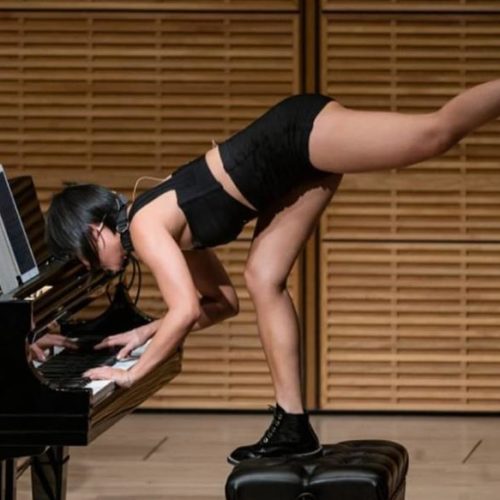
A law unto herself, this is her publicity pic for the summer festivals.
Without pedals, apparently.

A law unto herself, this is her publicity pic for the summer festivals.
Sebastian Breit, 20, won today’s audition for a vacancy in the oboe section at the Vienna State Opera.
If he plays his reeds right, he will be eligible in a couple of years for the Vienna Philharmonic.
Sebastian is Viennese, born and bred. It helps.
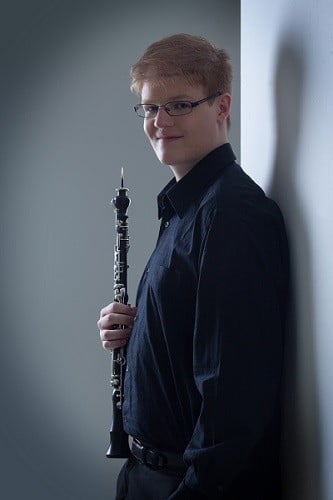
Alexandros Stavrakakis, 30, won the first prize for men in the Tchaikovsky voice contest.
Maria Barakova of the Bolshoi won first prize for women.
The voice contest is usually the least reported.
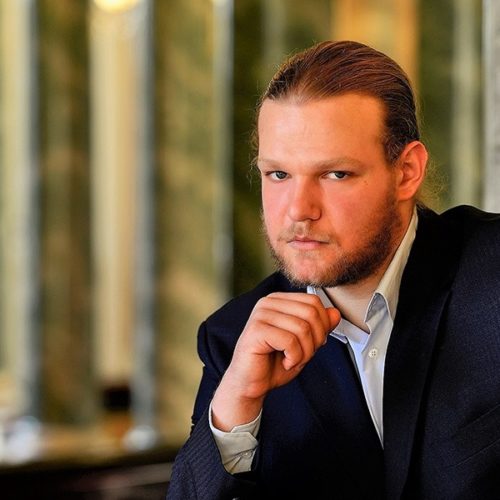
Munich’s Abendzeitung has published a powerful piece by the well-connected Robert Braunmüller calling for the Bavarian Radio Symphony Orchestra to seek another chief conductor.
Mariss Jansons, 76, has just taken three months’ off on doctors’ advice. His contract runs until 2024. Braunmüller lists his cancellations over the past year before concluding:
In the next few years the BR Symphony Orchestra will need a chief conductor who is fit and present in Munich. The debate about the orchestras of public service broadcasting will continue, the pressure for cuts will increase. In addition, the new concert hall in the Werksviertel needs a representative head – and that can only be the chief conductor. Jansons stays far too rarely in Munich… Even at the season opening, he is distinguished by his absence. He gives the impression that he prefers to direct the BR Symphony Orchestra away from of Munich.
Read on here.
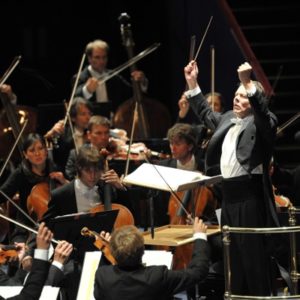
photo: Christodoulou
Ken-David Masur has been named principal conductor of the Civic Orchestra of Chicago, effectively the training orchestra for the Chicago Symphony. He starts in September and will have three weeklong residencies a year.
Ken-David is also the incoming music director of the Milwaukee Symphony.
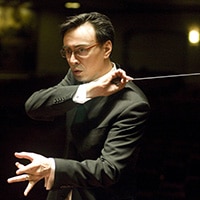
The results of the brass finals:
1 Zeng Yun (China)
= 1 Alexei Lobikov (Russia) – Mariinsky Theatre.
2 Fedor Shagov (Russia)
3 Felix Dervaux (France)

The first-ever wind and woodwind section of the Tchaikovsky Competition yielded a non-controversial result:
1. Matvey Demin, flute (Zurich Tonhalle)
2. Joidy Blanco, flute (student, Madrid)
3. Alessandro Beverari, clarinet(freelance, Geneva)
4. Lola Descours, bassoon (Oper Frankfurt)
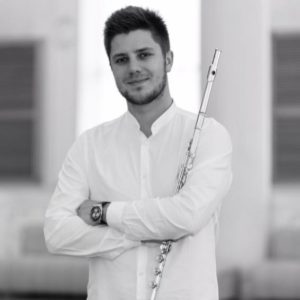
When Valery Gergiev was installed by President Putin as chair of the Tchaikovsky Competition in 2011, he installed the Van Cliburn chief Richard Rodzinski to clean up the judging cabal, introduced live streaming and generally exhumed the Augean stables to good effect. These reforms lasted all of two competitions. What we witnessed this week was a combination of dubious judgements, backroom collusions, third-world inefficiencies and Russian cover-ups. This was not a competition to write home about.
As a final word, we publish this observer’s report from a Russian-trained, Canadian pianist, Valerie Sobel:
TCHAIKOVSKY HOUSE OF CHORDS
June 27th, 2019: End Of An Era.
First came the application process, where contestants from all over the world for piano, cello, violin, voice, winds and brass had a deadline to declare their entry into one of the most prestigious music contests in the world: Tchaikovsky’s 16th International in Moscow, Russia. The deadline was mysteriously cancelled when a record number of fee-based applications poured in. Why stop the pipeline of euros when you don’t have to?
Second came the admission of Olga Volkova, Maestro Valery Gergiev’s Mariinsky concertmaster, among the violin semifinalists. (Olga didn’t make the final cut).
Gergiev is the Chairman of the Competition. For all intents and purposes, the musical puppet master of greater Russia and an undisputed influencer for all things musical in that country. Not to mention Putin’s front man.
Third came the stacked list of second-round semifinalist pianists. Russian pedigree made up 7 out of 14. Golden boy, 17 year old Alexander Malofeev of considerable talent and influential backing was a shoe-in for the second round, with all but a guarantee he’ll play well. He didn’t. His youth got in the way.
Now we’re at the three-day Finals event where competitors are expected to play two piano concertos back to back. We’ve got 3 Russians out of 7 competing. Not bad odd and perfectly consistent with the last 3 competition outcomes of 2015, 2011, and 2007. So far so good. The most nationalistic, most state-sponsored, most Russian and most Russian-controlled contest of immense national pride leading straight up to Vladimir himself is heading in the same direction as always …a Russian winner. Or at the very least to any of the top three spots.
Then came the unthinkable: the shameless mix-up of concerto order for An Tianxu, a Chinese pianist . The whole thing was quickly blamed on the announcer who misspoke, as if the competitor had no prior confirmation of order by the competition’s management. Why embarrass the management when you can quickly get rid of the announcer to diffuse public outage ? Not that the Chinese pianist had a reasonable shot at winning, but that’s not the point.
Today the whole thing comes completely undone for the Russian Gergiev-controlled competition, a contest that is an iconic symbol of perceived Russian cultural supremacy. But first, here is competition’s stats in the piano category (other categories aren’t too different in results):
2015
* 1st Prize: Dmitry Masleev,(Russia)
2011
* 1st Prize: Daniil Trifonov (Russia)
2007
* 1st Prize: Not awarded
* 2nd Prize: Miroslav Kultyshev (Russia)
* 3rd Prize: Alexander Lubyantsev (Russia)
2002
* 1st Prize: Ayako Uehara (Japan)
* 2nd Prize: Alexei Nabiulin (Russia)
1998
* 1st Prize: Denis Matsuev (Russia)
* 2nd Prize: Vadim Rudenko (Russia)
1994
* 1st Prize: Not awarded
* 2nd Prize: Nikolai Lugansky (Russia)
* 3rd Prize: Vadim Rudenko (Russia) and HaeSun Paik (China)
1990
* 1st Prize: Boris Berezovsky (USSR)
* 2nd Prize: Vladimir Mischouk (USSR)
* 3rd Prize: Anton Mordasov (USSR), Kevin Kenner (USA), Johan Schmidt (Germany)
1986
* 1st Prize: Barry Douglas (UK)
* 2nd Prize: Natalia Trull (USSR)
* 3rd Prize: Irina Plotnikova (USSR)
1982
* 1st Prize: Not awarded
* 2nd Prize: and Vladimir Ovchinnikov (USSR), Peter Donohoe (UK)
1978
* 1st Prize: Mikhail Pletnev (USSR)
* 3rd Prize: Nikolai Demidenko (USSR) and Evgeny Ryvkin (USSR)
1974
* 1st Prize: Andrei Gavrilov (USSR)
* 2nd Prize: Stanislav Igolinsky (USSR)
* 3rd Prize: Youri Egorov (USSR)
1970
* 1st Prize: Vladimir Krainev (USSR) and John Lill (UK)
* 3rd Prize: Viktoria Postnikova (USSR) and Arthur Moreira Lima (Brazil)
1966
* 1st Prize: Grigory Sokolov (USSR)
* 3rd Prize: Victor Eresko (USSR)
1962
* 1st Prize: Vladimir Ashkenazy (USSR) and John Ogdon (United Kingdom)
* 3rd Prize: Eliso Virsaladze (USSR)
1958
* 1st Prize: Van Cliburn (USA)
* 2nd Prize: Lev Vlassenko (USSR) and Liu Shih-kun (China
* 3rd Prize: Naum Shtarkman (USSR)
The story weaves itself without any additional commentary, doesn’t it? Except for a few notable anomalies that even Nikita Khruschev couldn’t prevent. Just as in 1958, when the world was stunned by the Iron Curtain’s awarding of 1st Prize to an American sensation, Van Cliburn, today we watched a similar phenomenon.
France’s Alexandre Kantorow left absolutely no choice to the puppet master, Valery Gergiev, and his jury cronies. None. Had they not awarded Alexandre the first prize for the most sublime performance of the most complicated pair of concerti, Tchaikovsky’s 2nd and Brahms’ 2nd played back-to-back and probably for the first time in competition history, the music mafia would’ve lost all credibility. It would’ve looked like orchestrated fraud. It would’ve made Gergiev look shadier, and he can’t afford that.
So! Frenchman Alexandre Kantorow deservedly wins. American Kenneth Broberg robbed of 2nd place and given 3rd, with Japanese, Mao Fujita, taking 2nd for reasons unbeknownst to many.
But let’s not lose sight of the main idea; never in the history of the most Russian and proudly nationalistic competition in the world, the Russians have not taken first two or three spots in some order. Or at least have been present. Today all three spots got occupied by non-Russians. This marks the end of an era that even the most political of musical entities couldn’t prevent or change.
The official end of Russian self-established, self-proclaimed supremacy in classical piano on home turf. Or anywhere, for that matter. Stamped, signed and delivered by the Russian oligarchs, puppet masters, and jury influencers themselves.
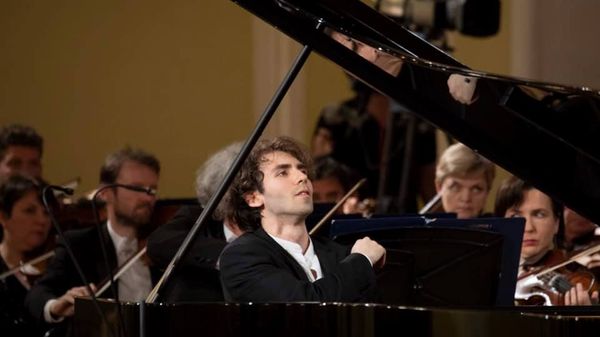
Today is also the beginning of a different era; Tchaikovsky’s 2nd Piano Concerto, that has so unfairly been shelved in favour of the popular 1st, is revived in full glory. All at the fingers of a 22 year-old Frenchman who took enormous risk in choosing the most complex and expansive of programmes in the most politically infused competition in the world.
(c) Valerie Sobel/Slipped Disc
Our diarist Anthea Kreston comes up against the hard face of German society:
I’m basically a pretty relaxed, chilled-out person. But with a lot of energy and ideas and plans. I don’t get stressed out. I guess my regular life and my violin life are exactly the same. Early and detailed preparation, advice from others, believing in my instincts, concert-ready in advance with time to settle and re-work, acceptance of my short-comings, willing and eager to take risks as long as they positively effect those around me, and with a triple-set of plans in the face of inevitable emergency. I’m here to enjoy the ride, to help others enjoy their rides, and to always try to improve as a person.
So, today, when I showed up at the visa office, 30 minutes before they open, with my messenger bag filled with every conceivable paper I might need, I was casually optimistic. Since moving out of the city of Berlin over two years ago, our path towards a settled and comfortable family visa has been rocky, unstable, time-consuming and extremely stressful. It has something to do with the fact that we are in the countryside now – they ask me questions like “why doesn’t Jason have a job“, and “why couldn’t they find a German to do your job?“. They didn’t ask things like this in Berlin, but now we live in the former East, and people seem to have different priorities. Not to say that getting an American visa for a European is any easier. I know it’s not.
When in Berlin, we were able to make an appointment (no longer possible – 2 months ago I showed up at our foreigners office at 6 am, stood outside for 3 hours until the office opened, then waited in a claustrophobic room with people clearly in much more dire straits than myself – a room full of refugee families), and had to have Jason pull the kids out of school and drive the one hour to the office, and all wait with me from 9:00 until 3:30, at which point they gave us, again, a three-month temporary paper (expires July 4). We have waited like this as a family 2 other times in the last 2 years, and Jason and I have gone individually or together at least another 6 times. To reiterate. I know the American Embassy also makes it Hell for people trying to get USA visas.
Two months ago they assured us that a three-year visa was being processed. So that’s what Jason went to get last week. Our processor said – just come, and knock on my door. So he went. There are always two, beefy, bald, scary guys in uniform who you have to get past in order to get into that small, stinky room that reeks of desperation. Jason said – Frau **** told me to come and knock. But the bouncers turned him away. Well, actually they said – “you have to take a number, but we ran out of numbers, so you can’t have a number, and you also can’t knock“.
So, today, we went again. What happens on July 4 if we don’t have new papers? Who knows. Why can’t we get an appointment, and why can’t they send us our visas, or why isn’t there a pick-up window, or a notice telling us what our status is, why can’t we call or email? It’s enough to even make ME slightly nervous. And we have tried everything, from hiring a specialist to come with us (I think they thought we were pretentious), bringing a friend (angry that we didn’t speak fluently) to going it alone (seems to be the best solution). So – today, Jason ran interference as I knocked. And I was turned away. And we waited. And I knocked again. And I was turned away again. But I didn’t budge.
So – what did we get? Another 3 months.
But, guess what? I am prepared in advance, in detail. I have savings. I have multiple sets of plans, advice from others, am willing to take risks as long as it positively effects those around me, and I trust my instincts. And I know that I love what I do, have several different scenarios that are already in place, and have a husband and kids who believe in me and don’t get stressed out. So, where will we be on September 26 when our visa runs out? Together and happy. That’s for sure.
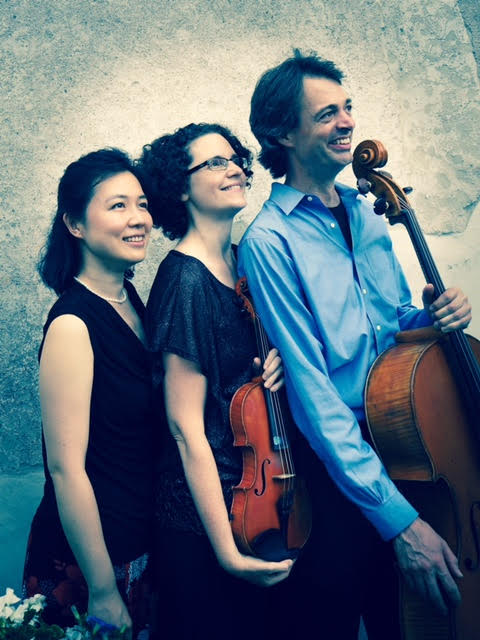
At his inaugural press conference in Seoul, Osmo Vanska could be forgiven for believing they were promising him the earth:
CEO Kang hinted there might be a new hall for the SPO soon. Though she refused to go into details, she mentioned there may be “good news in the near future.” The SPO currently does not have a resident concert hall.
“There might be a new concert hall closer to this area (Gwanghwamun). (It is important for) the orchestra to rehearse at the same place where they are playing their concerts,” Vanska said. “All American and most of European orchestras, they rehearse where their concerts are. That’s a huge thing for the quality of the orchestra.”
More here.
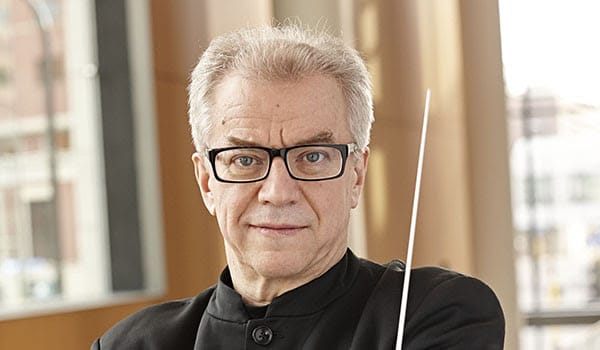
In a striking act of inclusivity, the Bach Choir have hired Paul Whittaker to offer simultaneous sign-language for tonight’s performance of Beethoven’s Missa Solemnis.
He says: ‘It’s the first time this piece has ever been signed, as far as we know… It’s hard work, translating from Latin into sign language then matching that with the music is a huge challenge but I love it…. Myself and Sir Richard Stilgoe are introducing the piece, chatting a bit about Beethoven’s own deafness and how deaf people enjoy and make music.’
Read on here.
